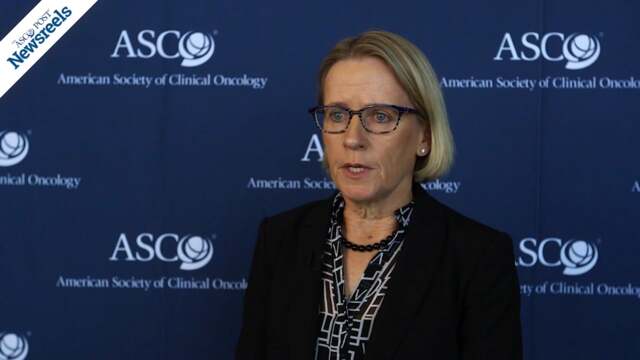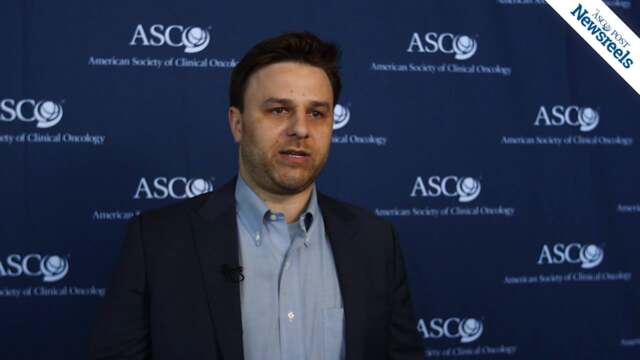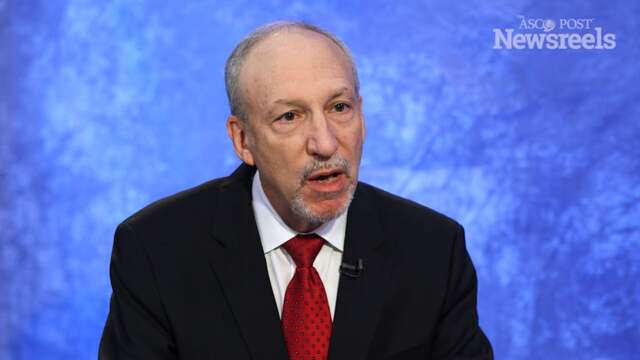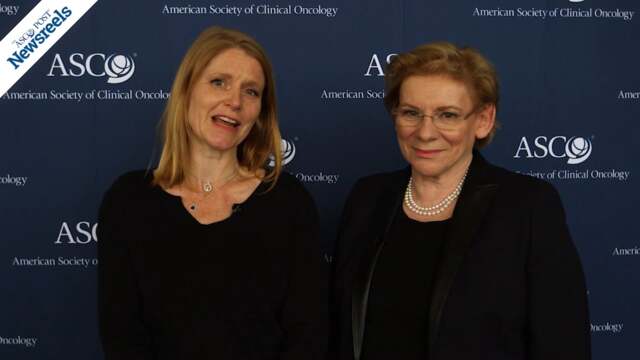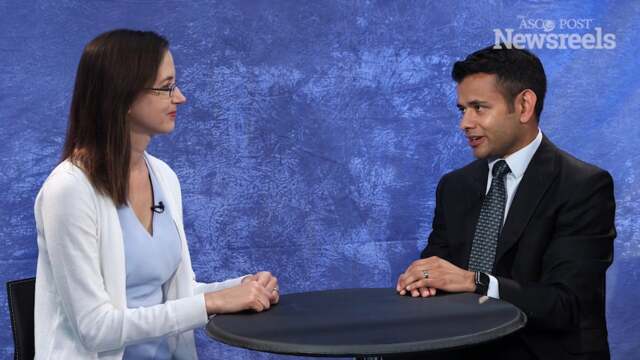Nicholas D. James, MBBS, PhD, on Prostate Cancer: Results From the STAMPEDE Trial
2017 ASCO Annual Meeting
Nicholas D. James, MBBS, PhD, of Queen Elizabeth Hospital, discusses study findings on adding abiraterone for men with high-risk prostate cancer starting long-term androgen-deprivation therapy (Abstract LBA5003).
Jane McNeil Beith, MD, PhD, of Chris O’Brien Lifehouse, discusses long-term study results on a psychological intervention, called “Conquer Fear,” designed to reduce clinical levels of fear of cancer recurrence in breast, colorectal, and melanoma cancer survivors. (Abstract LBA10000)
Matthew D. Hellmann, MD, of Memorial Sloan Kettering Cancer Center, discusses study findings on nivolumab ± ipilimumab in advanced small cell lung cancer, in the first report of a randomized expansion cohort. (Abstract 8503)
Lee S. Schwartzberg, MD, of West Cancer Center, reports on this past year’s progress of the ACCC initiative to speed adoption of immunotherapeutics in community practices.
Solange Peters, MD, PhD, of the University of Lausanne, who has been a driving force in ESMO’s efforts to promote women in oncology, talks with Mary Gospodarowicz, MD, of Princess Margaret Hospital, a recipient of the 2017 Women Who Conquer Cancer Mentorship Award.
Tanya B. Dorff, MD, of the USC Norris Comprehensive Cancer Center, and Sumanta K. Pal, MD, of the City of Hope, discuss two key presentations on prostate cancer: findings on adding abiraterone for men with high-risk prostate cancer starting long-term androgen-deprivation therapy, and an after-market study on continuing enzalutamide post PSA progression in men with chemotherapy-naive metastatic castration-resistant prostate cancer. (Abstracts LBA5003, 5004)
